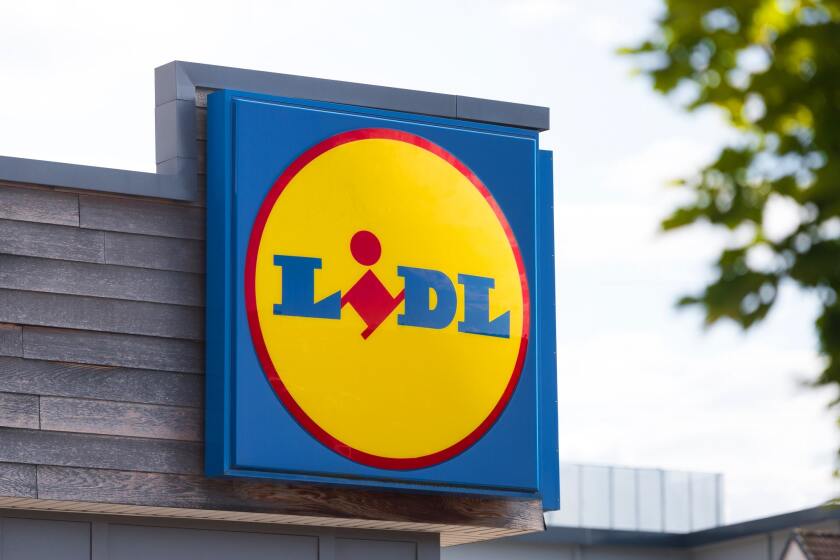Regular viewers of British reality TV show The Apprentice may have noticed a softening in tone of late.
The hard-nosed UK businessman Alan Sugar, who hosts the show in which contestants compete against each other to win financial backing for their business, would previously unceremoniously say “you’re fired” to each person who failed a task.
Sometimes he would add a few barbed comments.
However, his new phrase is almost always: “It is with regret, that you’re fired.”
Bear with me, readers, there is a (fairly tenuous) link.
In a judgment this week at the England and Wales Court of Appeal in Lidl v Tesco one of the judges, Lord Justice Kim Lewison, quoted the 1990 passing off case Reckitt & Colman v Borden in which the judge wrote: “If I could find a way of avoiding this result, I would.”
The judge in the 1990 case added: “With undisguised reluctance, I agree … that the appeal should be dismissed.”
In effect, the Court of Appeal judges disagreed with the first-instance judge’s conclusion that the average consumer believed that Tesco was somehow offering a price match to Lidl.
However, they could not find that it was “rationally insupportable”, so with some reluctance (a la Alan Sugar) they backed it.
The other two judges in the Lidl v Tesco dispute, Lord Justices Richard Arnold and Colin Birss, had a similar take.
A brief bit of background for those who need it.
Last year, Mrs Justice Joanna Smith at the England and Wales High Court ruled that Tesco’s logo for its ‘Clubcard’ discount scheme had taken unfair advantage of Lidl’s reputation and damaged the distinctive character of the Lidl logo.
Tesco, the court said, was liable for trademark infringement and passing off.
Both logos feature a yellow circle on a blue square. Lidl’s has a thin red border around it.
On Tuesday, March 19, the Court of Appeal dismissed Tesco’s appeal on the finding of infringement and passing off.
Justice Lewison observed that the case was “very difficult” and “at the outer boundaries of trademark protection and passing off”.
Strange times
The scenario we find ourselves in is odd.
Three renowned IP judges agree that an earlier decision was questionable and that they would have ruled the other way but that there is no legal basis under which to change it.
There has been much coverage in both the mainstream and specialist press since the judgment.
Most correctly say this was a win for Lidl.
Some commentators have also said the case (perhaps ironically given Lidl’s business model) gives hope to brands in the fight against lookalikes.
Both of those things are true.
But few have addressed the judges’ comments and what they mean.
In effect, two senior judges have said they would probably not have come to the same conclusion as the High Court judge. Arnold also raised some doubts but was slightly more favourable.
The only reason they backed the earlier ruling was because it was not irrational, there had been plenty of evidence considered, and there had been no error of law.
As Tesco’s external counsel, Haseltine Lake Kempner partner Richard Kempner, said in an interview this week, overturning a judgment under these circumstances is almost impossible.
Unless I am missing something, it’s hardly a ringing endorsement for brand owners.
As Kempner further added: “We are reminded that factual findings are almost impossible to overturn on appeal.”
In other words, the court had no choice.
IP owners may want to take note of this. The ruling is not a guarantee that similar passing off claims will succeed at first instance.
Not so soft
There is another, semi-related issue to discuss – the record of the High Court when ruling on trademark and copyright disputes, the so-called ‘soft’ IP cases.
Smith, who handed down the first-instance decision, is one of a handful of judges who hears IP cases in the High Court but who is not an IP expert.
The bulk of patent, or ‘hard’, cases is assigned to IP experts who have spent their whole careers arguing IP law.
I do not criticise Smith. However, it is certainly not the first time a first-instance IP decision has been questioned on appeal.
It’s a further example that far from being ‘soft’, trademark cases are very complex and deserve attention from specialist judges.
If Arnold, Birss, and Lewison are to be believed it's entirely possible that a case that comes before an IP specialist at the High Court could (and perhaps should) go the other way – or at least not quite so skewed in favour of one side.
With a further appeal out of the question (Tesco is to start rebranding its Clubcard shortly), the decision will stand.
But I wouldn’t necessarily be too confident if I were an IP owner embarking on a similar battle.











